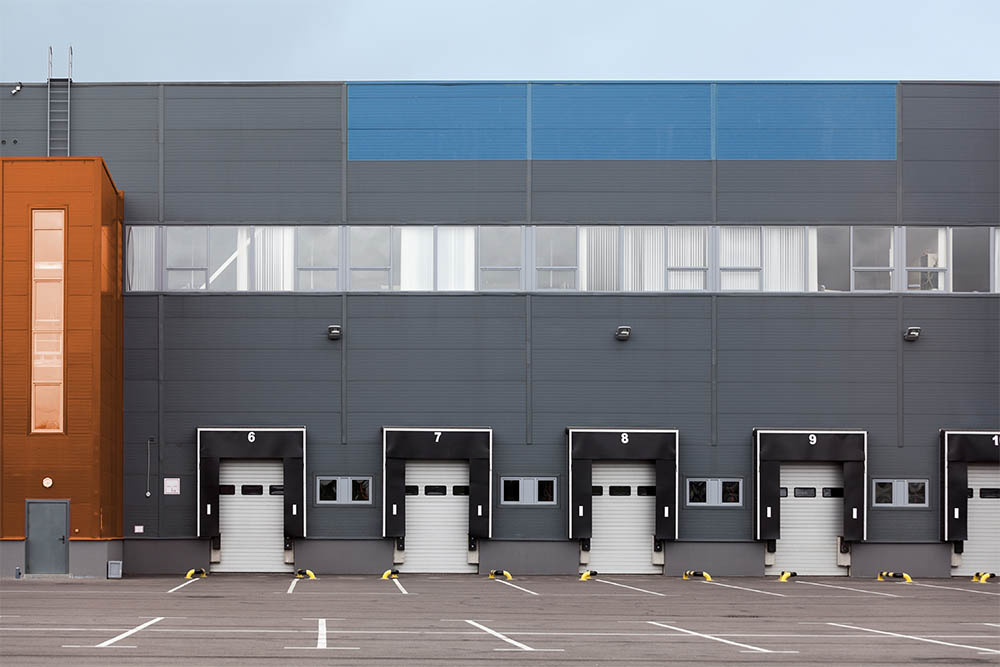Supply Chain Management Blogs 11 to follow in 2020
Supply chain management is a vast and complicated topic. It touches so many industries, such as food, energy, commerce, retail, and more. For this reason, fleet managers and supply chain executives should build a strong understanding of its fundamentals. They should also stay up to date with the latest tools, trends, news, and analysis. They should constantly learn from articles, case studies, reports, and videos. Why bother? Insights from these sources can empower them to make better decisions. They can use faster tools and adopt best practices. They can form strategies that maximize their efficiency, improve productivity, save time, and.


Supply chain management is a vast and complicated topic. It touches so many industries, such as food, energy, commerce, retail, and more. For this reason, fleet managers and supply chain executives should build a strong understanding of its fundamentals. They should also stay up to date with the latest tools, trends, news, and analysis. They should constantly learn from articles, case studies, reports, and videos. Why bother?
- Insights from these sources can empower them to make better decisions.
- They can use faster tools and adopt best practices.
- They can form strategies that maximize their efficiency, improve productivity, save time, and reduce costs.
Thus, an efficient supply chain and transportation system is a competitive advantage for a business today.
But there are hundreds of blogs on these topics. It’s easy to get lost in all the noise. Therefore, in this post we list our top 11 most informative and comprehensive blogs on supply chain management.
Vector
Vector’s blog provides useful information about going digital, transportation management, and many other topics. Its case studies describe successes by trucking companies of different sizes and in a variety of markets. Also, it provides extensive coverage of industry trends.
Supply Chain Management Review
Supply Chain Management Review is a popular publication in this industry. It features insightful articles written by world-class professors, industry analysts, and leaders. They cover topics such as supply chain management, logistics, procurement and sourcing, and software and technology. Thus, it’s a great resource to keep up to date with industry trends and new developments.
SCMR also produces white papers, special reports, and webcasts on key topics. For example, this thorough guide explains how to improve your supply chain by using artificial intelligence and blockchain. It talks about the best practices for using emerging technologies for logistics.
Fleet Owner
Fleet Owner runs two hugely successful blogs for fleet managers: Trucks at Work and Open Road. Both cover topics such as operations, equipment, new technologies, vehicle maintenance, industry trends, and regulations. They also offer tips, solutions, and opinions on the most pressing issues.
By reading these blogs, fleet executives and managers can gain valuable insights on making their logistics more efficient to reduce costs. They can also get a better understanding of how the industry is evolving. This gives them an upper hand because they can identify trends faster, adapt best practices, and develop strategies to increase their market share.
Supply Chain Brain
With around 20 posts a week, Supply Chain Brain is a highly comprehensive resource for a variety of topics related to the supply chain. It covers commentaries, opinions, and analysis by top industry executives.
Another great feature of SCB is that it produces a variety of formats, such as blogs, podcasts, videos, webinars, and white papers. However, it isn’t limited to logistics. The blog also covers industries such as aerospace, automotive, industrial manufacturing, and warehousing and retail. The blog is aimed at high-level executives and decision makers. It can help them formulate cutting-edge strategies and implement innovative ideas.
Cerasis
Cerasis is a third-party logistics company that helps make shipping more efficient. It provides technology and automation software to manufacturers and distributors. Thus, Cerasis helps with freight management, accounting, operations, and tools. The company has been working with thousands of fleet operators over many years. This expertise in transportation management helps them produce extremely useful content.
The Cerasis blog also covers advice and tips on current trends and news. By establishing themselves as thought leaders, their blog gets them a lot of traffic and potential clients. Apart from short blogs, Cerasis also has a ton of free guides, e-books, white papers, and podcasts. These high-quality resources have material for newcomers and veterans.
Modern Distribution Management
Modern Distribution Management is a more technical and academic-oriented blog. It provides data-backed intelligence to wholesale distributors. MDM’s reports on industry research and trend analysis have won multiple awards. Their content is designed specifically for the wholesale distribution industry.
Topics covered include profitability, human resources, inventory management, economic outlook, and technology. MDM performs detailed analysis and reporting on these issues. Then it distributes those insights through bimonthly newsletters, daily emails, webcasts, and blogs. The company also sells in-depth reports that cover statistics, forecasts, and trends for the distribution industry. For example, this Economic Benchmarks for Wholesale Distribution report provides key information and data points.
Supply Chain Digital
Supply Chain Digital has a huge library of resources for managers and executives who want to learn more about the industry. The topics they cover are diverse—from procurement and purchasing to data analytics and warehousing. Their main form of content is a weekly email newsletter and monthly magazine. They also do interviews, features, and videos.
A distinctive part of this blog is the case studies from leading companies. Executives from these companies discuss their best practices and provide tips. One such report by Henkel discusses how Henkel has made its supply chain digital. These reports help supply-chain managers gain practical advice from their peers. This information can help them think about solving these issues for their firm.
DAT
DAT’s blog is a one-stop shop for trucking news, analysis, and trends. It’s one of the must-follow blogs for the trucking and freight industry. It provides data-backed information and market insights. DAT (formerly Dial-a-Truck) also covers management topics—warehouse, distribution, transportation, contract, risk, and financial.
DAT’s content is primarily focused on carriers, brokers, and shippers. As the largest truckload freight marketplace in North America, DAT has expertise on the topic of trucking operations. So, its blogs are highly informative and filled with actionable advice.
Logistics Viewpoints
Logistics Viewpoints is a think tank for the logistics sector. Most topics on the blog deal with global and international supply chain matters. LV has an impressive array of industry experts on board who write about emerging trends, technologies, and services. Their editors and analysts bring more than 40 years of logistics research experience.
The publication also releases This Week in Logistics, which discusses the latest developments. Keeping up to date with Logistics Viewpoints can help executives be on top of their transport management processes.
Overdrive
Overdrive is a more trucker-centric blog. It’s also “the voice of the American trucker,” as it has covered owner-operator truck drivers for more than 50 years.
Overdrive covers news, analysis, and features on all topics that may concern drivers and owner-operators. The blog also helps drivers improve their day-to-day tasks by providing lessons and key practices. Drivers can get training, bond with other drivers, and read about the latest developments. All of this also helps readers understand supply chain and logistics strategy from the driver’s point of view. As drivers form a vital cog in trucking operations, having a better understanding of their activities can help improve their productivity.
Supply Chain 24/7
Supply Chain 24/7 is a top resource for supply chain, logistics, distribution, and transportation professionals. It features highly customized and relevant content for various topics, such as warehouse, transportation, technology, and business. It goes into great detail for each step in the end-to-end transportation process. These include sourcing, purchasing, production planning, inventory management, logistics, customer service, and reverse logistics.
The blog also has an extensive “education center” section where top universities produce informative content. For example, MIT created this educational content: Supply Chains Driving Strategic Advantage: Managing Dynamics and Innovating the Future. Such resources can help build strong fundamentals for understanding new supply-chain concepts and ideas.
Conclusion
Supply-chain management is a constantly evolving practice. Key decision makers and managers need to stay on top of the news, trends, and tools to ensure best performance. Following the above-mentioned 11 blogs will help fleet operation managers get the most out of their resources.
This post was written by Aditya Khanduri. Aditya currently handles product and growth at Cryptio.co, and he’s also built a couple of B2B products. He’s proficient in data analysis with Python and has worked with multiple startups in the blockchain and artificial intelligence sector.
Ready to transform your supply chain?
Increase efficiency and productivity. Say goodbye to delays, handwriting error and time-intensive manual data entry.



